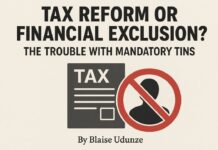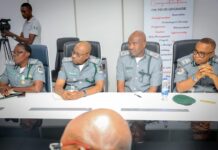As part of efforts to advance President Bola Tinubu’s Renewed Hope Agenda (RHA), the Minister of Industry, Trade and Investment, Dr. Jumoke Oduwole, has revealed that the government is implementing a coordinated strategy to boost exports, expand access to financing, and drive regulatory reforms to strengthen investments in Special Economic Zones (SEZs).
She made this known at the third annual SEZ meeting in Lagos, organized by the Nigeria Economic Processing Zones Authority (NEPZA), Oil and Gas Free Zones Authority (OGFZA), and the Nigerian Economic Zones Association (NEZA). The event, themed “Fostering Strategic Synergies for Enhanced Special Economic Zones Operations and Sustainable Economic Growth,” brought together key stakeholders to address challenges and opportunities in Nigeria’s SEZ landscape.
Oduwole highlighted that while Africa has over 200 operational SEZs and more than 70 ongoing projects, Morocco and Nigeria lead the pack in terms of numbers. She pointed out that Morocco’s 12 Free Trade Zones (FTZs) have thrived, attracting significant foreign direct investment (FDI) in the automotive and aerospace industries, whereas Nigeria’s SEZs are yet to reach their full potential.
She noted that despite Nigeria’s FTZs attracting over $300 billion in investments and contributing over N650 billion to government revenue, regulatory and policy bottlenecks still hinder their competitiveness. To address this, the ministry is working with the Federal Inland Revenue Service (FIRS), Central Bank of Nigeria (CBN), and NEPZA to align fiscal, monetary, and trade policies.
Chairman of the Presidential Committee on Fiscal Policy and Tax Reforms, Taiwo Oyedele, stressed the need to update Nigeria’s outdated Free Zone laws, particularly the 1992 Free Zone Act, to reflect modern economic realities. He noted that while Nigeria boasts numerous SEZs, their impact on non-oil exports remains weak, with earnings below $5 billion annually, compared to Morocco’s $40 billion.
Oyedele explained that the initial tax reform proposal required Free Zone businesses exporting up to 25% of their products to Nigeria’s Customs Territory to pay taxes on those sales. However, after stakeholder engagements, the proposal was revised to ensure that businesses exporting 100% remain tax-exempt, while those selling within Nigeria would pay tax proportionally.
Addressing global tax compliance, Oyedele noted that under international regulations, multinational companies operating in Nigeria must pay a minimum 15% tax either locally or in their home countries. To prevent revenue losses, Nigeria is considering a “top-up tax” mechanism to ensure its fair share of corporate taxation. The proposed reforms are currently before the National Assembly, with public hearings scheduled in both chambers.
Lagos State Governor Babajide Sanwo-Olu, represented by Commissioner for Commerce, Cooperatives, Trade, and Investment, Mrs. Folashade Ambrose-Medebem, emphasized the need to resolve critical SEZ challenges such as infrastructure, financing access, and regulatory harmonization. He noted that SEZs are essential for industrialization, FDI attraction, and job creation, citing the Lekki Free Trade Zone and Lekki Deep Sea Port as key projects with significant economic potential.
NEZA Chairman, Nabil Saleh, identified inconsistencies in regulatory frameworks and overlapping mandates as major obstacles to SEZ growth. He warned that competing African countries are aggressively enhancing their investment climates with tax incentives and streamlined regulations, making Nigeria’s SEZs less attractive.
Dr. Femi Ogunyemi, Managing Director of NEPZA and Council Member of the World Free Zone Organization (WFZO), underscored the importance of policy reforms to attract FDI and enhance investor confidence. He revealed that Nigeria’s SEZ exports have a cumulative annual growth rate of 0.79%, while domestic exports and FDI have grown at 3.26% and 3.68%, respectively.
OGFZA Managing Director, Bamanga Jada, pointed to World Bank projections that Nigeria’s economy will grow from 3.3% in 2024 to 3.6% in 2025, highlighting SEZ investment opportunities. He announced that OGFZA is facilitating key projects, including a Compressed Natural Gas (CNG) conversion center in Onne/Ikpokiri to cut logistics costs by 70% and an LPG processing plant in Onne and Liberty Free Zones with a combined 70,000-metric-ton storage capacity.
According to Jada, these projects will improve access to clean cooking gas for over 200,000 homes while advancing Nigeria’s environmental sustainability goals.
With ongoing reforms and infrastructure developments, Nigeria aims to reposition its SEZs as key drivers of industrial growth, non-oil exports, and economic diversification under the Renewed Hope Agenda.














